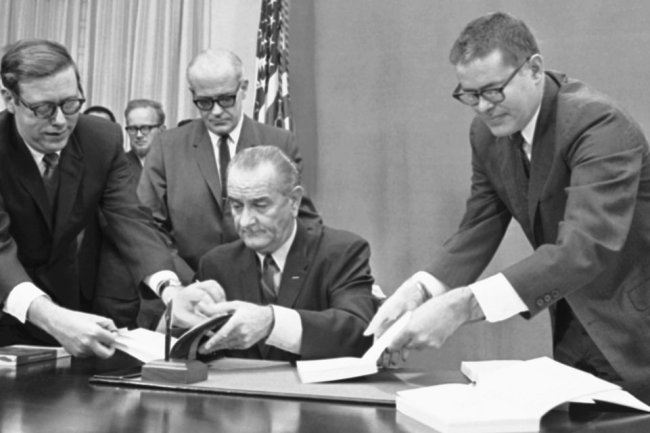What Happens When You Stop at One Glass of Wine a Day?
Our wine columnist gave it her best shot, in accordance with government-issued dietary guidelines. She was surprised by the results—and her own doctor’s opinion. SMALL DOSES One glass of wine per day means exactly that. According to government guidelines, you can’t save up your allotment and splurge on the third day. Illustration: Mitch Blunt By Lettie Teague July 27, 2023 9:00 am ET READING THE MOST recent Dietary Guidelines for Americans from the U.S. Department of Agriculture and U.S. Department of Health and Human Services, I found that women are advised to drink one glass of wine or less and men two glasses or less daily. Do many follow this advice? I actually did, at least for a while. Ordinarily, I drink more than one glass a day—usually two. And


SMALL DOSES One glass of wine per day means exactly that. According to government guidelines, you can’t save up your allotment and splurge on the third day.
Illustration: Mitch Blunt
READING THE MOST recent Dietary Guidelines for Americans from the U.S. Department of Agriculture and U.S. Department of Health and Human Services, I found that women are advised to drink one glass of wine or less and men two glasses or less daily. Do many follow this advice?
I actually did, at least for a while. Ordinarily, I drink more than one glass a day—usually two. And when I took a casual poll of friends and acquaintances, I found that I’m far from alone in exceeding government guidelines. Very few said that they stop at a single daily glass; some drink more than I do.
What if I downscaled my drinking, at least for a week? What short-term benefits might there be? I decided to give it a try.
The 2020-2025 guidelines cover a wide range of topics related to food and drink and contain extensive nutritional advice. For example, the guidelines suggest that around 85% of one’s calories should come from “nutrient dense” choices like fruits, vegetables and grains, leaving the remaining 15% for “other uses.”
“What if I downscaled my drinking, at least for a week? What short-term benefits might there be?”
Alcohol ranks among those other uses, and the advice regarding its consumption is especially stern. Consider, for example: “Evidence indicates that, among those who drink, higher average alcohol consumption is associated with an increased risk of death from all causes compared with lower average alcohol consumption.” The list of conditions that might occur as a result of excess alcohol consumption is quite long—and quite sobering. I’ll spare you the specifics here.
I was disappointed to find that the government’s proposed one glass is a stingy 5-ounce pour of 12% alcohol wine. If I got five ounces for a $25 glass of wine in a restaurant or bar I’d be tempted to object. Six ounces is generally considered the industry standard; a few restaurants I know even pour a bit more.
Furthermore, most white wines these days exceed the government’s 12% figure, and it’s increasingly hard to find any red wine that isn’t at least 14% alcohol or more. (Warmer weather means riper grapes, which produce higher alcohol wines.)
A 5-ounce glass of 12% alcohol wine has about 120 calories, according to the guidelines. And lest you consider forgoing that one glass a day to drink two glasses the next, the guidelines discourage that: The one drink or less a day for women and two for men, they stipulate, is “not intended as an average over several days, but rather the amount consumed on any single day.”
While I didn’t save up my wine allotment for a few days to have three glasses the third day, I did deviate ever so slightly from the official guidelines. I drank a six- not 5-ounce serving. And the wines I drank almost always exceeded that 12% alcohol figure. I like lower-alcohol wines, but they’re elusive and I didn’t necessarily want to drink a low-alcohol Muscadet or Vinho Verde or Lambrusco for several days in a row. I wanted something a bit richer and more complex.
After all, since my husband rarely drinks more than one glass at any time, once I opened the bottle, we would both have to drink the same wine for several days. That meant I had to consider the closure, too: Screwcap bottles stay fresher longer.
SHARE YOUR THOUGHTS
How many glasses of wine do you drink each day? Join the conversation below.
Additionally, there was the question of timing. When did I want to drink my one glass? I didn’t want to drink too much (or perhaps any) of the wine before dinner because I’d have nothing left by the end or maybe even the middle of the meal. Drinking my one glass of wine very slowly, however, could be a positive development: Perhaps I’d savor the wine even more. Or would I merely be eking out tiny moments of pleasure until I reached the too-soon end? And with a white, I found that the wine grew tepid over the time it took me to drink it.
With so much on my mind, I found after a few days that I was not only drinking less but also eating less food. Then came the challenge of eating out. A few days into my one-glass regimen we met friends for dinner at our favorite BYO, Divina Ristorante in Caldwell, N.J.
How would I be able to measure just one serving of the very good 2021 Bruno Giacosa Roero Arneis (a white wine from Piedmont, Italy) that I’d brought along? Chef Mario Carlino provided a measuring cup.
Drinking only one glass proved economical, as one bottle was enough for our table of four. Our friend Bobby, like my husband, doesn’t drink much at all. He, in fact, had been the only one of my friends who didn’t recoil when I’d announced I would be drinking just one glass. My friend Burt said he could drink only one glass of wine “as long as I have a Martini beforehand,” while my friends Robert and Tom adamantly dismissed the idea. “One glass! Never!” they declared, nearly in unison. “Not even for brunch,” said Tom. “Your first glass sets you up, mellows you, and then you have a glass of wine with dinner,” Robert added. “Your third glass could be dessert,” Tom suggested.
At the end of my one-glass week I noticed a few clear benefits. I’d lost a couple pounds and I was sleeping better, too. And yet, despite such positive developments, when the week was up I happily went back to drinking that second glass (and another half-glass on my first day back to my normal routine, to celebrate). I’d missed the sense of expansiveness, of total relaxation that comes with sitting down to a meal that begins with a glass of wine and extends to another that I don’t have to carefully parcel out. My husband even drank a second glass with me. Maybe I will go back to drinking one glass of wine with dinner from time to time. But not right now.
A few weeks later, I had a checkup with my doctor, a top gastroenterologist in New York and a non-drinker. I told him about my one-glass-of-wine scheme and asked what he thought, fully expecting some sort of commendation. “You could drink up to half a bottle of wine a day,” he replied, “and be fine.”
Email Lettie at [email protected].
MORE IN FOOD & DRINK
- Crabs, Corn, Butter: This 3-Ingredient Feast Is a Summer Weekend Showstopper
- Memorize These Cocktail Ratios for Easy Drinks at Home
- This Shortcut Crab Risotto Is a Summer Recipe Worthy of Sophia Loren
- In a Grilling Rut? This Quick Seafood Supper Is the Answer
- For Healthy Vietnamese Recipes, This Gen X Chef Consulted a Master: Mom
What's Your Reaction?

















